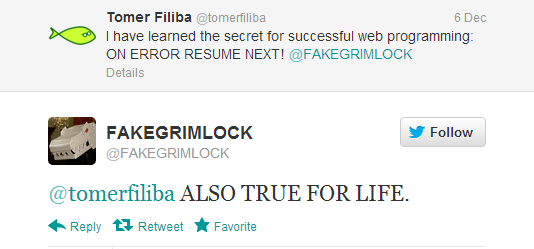New Experiences December 15, 2012

Okay, I’ve been slacking off and I feel I’ve got some explaining to do… Allow me to start by admitting that I lied. If you remember, I said I wanted an easy life, but then the opportunity came and I knew I had to take it: I’ve joined two friends to co-found Touchbase. Yes, I said it won’t happen to me, but heck, it did.
At Touchbase, we plan to revolutionize the calendar - this outdated table that you use every day to manage your time. You see, it turns out that even though hundreds of millions of people world-wide run their lives according to this naive table, it hasn’t really changed much in the last couple of centuries: it’s just a passive, linear representation of time, into which you insert events.
We believe people spend way too much time managing their time. In other words, you work for your calendar instead of it working for you. Think of how much time people spend coordinating meetings… If both you and the person you wish to meet with work at the same place (or share calendars), you can normally see each other’s free/busy times. This makes finding a suitable time for you two a bit easier, but as you don’t see event details, you can’t make informed decisions.
For instance, your friend might have an out-of-town meeting from 9am to 11am, so picking a time slot right at 11am isn’t a good idea. Or, she might be on a business trip; she won’t block her whole day as she still wants people to book with her at her destination, but how would you know that? And the other way around - suppose you and this Tech guru will both be in New York next week, but neither one of you knows about the other being there. So instead of grabbing a coffee at a Starbucks next week, you’ll have to take a flight to California three weeks from now.
And we’ve only talked about one-on-one meetings. I suppose you know how frustrating is coordinating a meeting of five people (even in the same office), or handling the reschedules/ counters that follow it. We aim high, both technologically (and algorithmically) and product-wise, but we’re starting out with more modest go-to-market strategies.
Lessons on Web Programming
In case you’ve been reading my blog, you probably know by now that I’m no fan of web programming. I always feel it’s a conglomerate of unrelated or inferior technologies, hastefully stacked one on the other. That’s not to say that people don’t do amazing stuff on the web, but the foundations of it all are shaky.
Part of our job at Touchbase it to handle large amounts of user data, which we obtain from third- party providers. It works 98% percent of the time, but every once in a while we get timeouts or malformed data, which aborts the user’s request. In case the user’s data is somehow malformed (e.g., an expected field is missing in one record), subsequent retries would fail just the same, leading to user frustration. At some point it came to me that web programming is actually a stochastic process, not a deterministic one like most software development we’re used to. We work with big numbers here, where the occasional anomaly should just be ignored. Many “best practices” simply don’t apply here and one has to resort to wishful thinking. In other words, do whatever you can, ignore errors and learn to live with partial data.
I brought this realization to the mighty @FAKEGRIMLOCK, and he explained:
I’m an enlightened person now.
In Other News
I just released Plumbum v1.1 today, adding Paramiko integration and Subcommand support. As usual, the changelog holds the full details. I plan to write a short tutorial on subcommands soon, so stay tuned.


